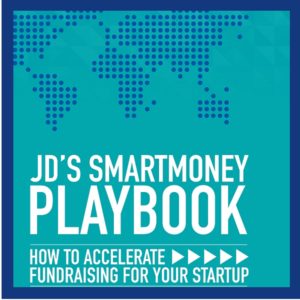It’s scary enough to jump off a cliff, but why would anyone attempt to also assemble an aircraft on the way down?
In essence, that’s the question that LinkedIn founder, Reid Hoffman, put to an audience at the recent Global Entrepreneurship Summit.
Here’s what Reid actually said, as close as I recall it:
I often say that starting a company is like jumping off a cliff and assembling an aircraft on the way down. The idea behind this analogy is that every new business effectively exists as the walking dead at launch. That’s your default state: You don’t have any customers. You’re burning capital. The clock is ticking and you’re falling fast. Until you have revenue on a solid trajectory to exceed costs, your business’s natural result is a crash.
So what do entrepreneurs need in order to fly?
Networks. Networks of capital. Networks of talent and expertise. Networks of customers and product distribution.
The networks that entrepreneurs can access have never been stronger, and that’s why there’s never been a better time for entrepreneurism.
It’s a great passage by an entrepreneur that has created enormous financial gain for himself and investors. And he’s right, of course. But, while he inferred it, he didn’t explicitly mention a specific network that is vital to entrepreneurial success. And that is access to a network of SmartMoney investors.
If you’re a subscriber, you’ve no doubt read what I have to say about the difference between “smart” money and “dumb” money. But you don’t have to take my word for how important it is. Just read this blog post by serial entrepreneur Alexander Muse on his site.
In the post, Alexander writes about how critical it was to him (and is to you) to find the right angel investors. By “right”, he means investors with knowledge, connections and prior success. Here’s what he has to say (my emphasis in bold):
The fact that you’re earliest investors are familiar with the space and had their own successes will give you a big leg up. First, it is very likely that these engaged angels will help introduce you to the same investors who funded their prior companies (presumably the VC made a lot of money on this deal so they’ll take the meeting). Second, other investors, when they learn that seasoned/successful/known entrepreneurs have risked their own money to help you launch they’ll be curious and want to meet.
 I describe how to find the right investors in the SmartMoney Playbook. It’s free, and you can grab it here.
I describe how to find the right investors in the SmartMoney Playbook. It’s free, and you can grab it here.
Alexander is dead on. There can be a billion dollar difference between getting investors that bring knowledge and relationship to the table vs. investors that don’t.
In his blog post, Alexander goes on to outline six steps entrepreneurs should take in order to raise angel investment. As a very successful entrepreneur who has sold multiple companies, you may want to look closely at what he wrote:
- create a list of all former/current startup competitors.
- create a list of all startups that have ‘pain’ that his product solves.
- create a list of the investors in the above companies.
- create a list of the founders of the above companies.
- reach out to the investors to ask advice about his product and ask for referrals to potential seed investors.
- reach out to the founders to ask advice about his product and ultimately ask for investments.
Look familiar? It’s perfectly aligned with how we create targeted investor lists for entrepreneurs or teach them how to do so on their own.
Both Reid and Alexander are saying the same thing. If you want your startup to succeed, you can’t expect to go it alone. You have an amazing idea and need an amazing team to see it to fruition. That team, or network, includes investors that bring much more than just cash to the table.
So, words of wisdom from two very successful entrepreneurs.
Remember, up to 85% of businesses fail because they run out of money! If you haven’t yet begun building your network of SmartMoney investors, our playbook can probably help you. And, best of all…it’s free!







